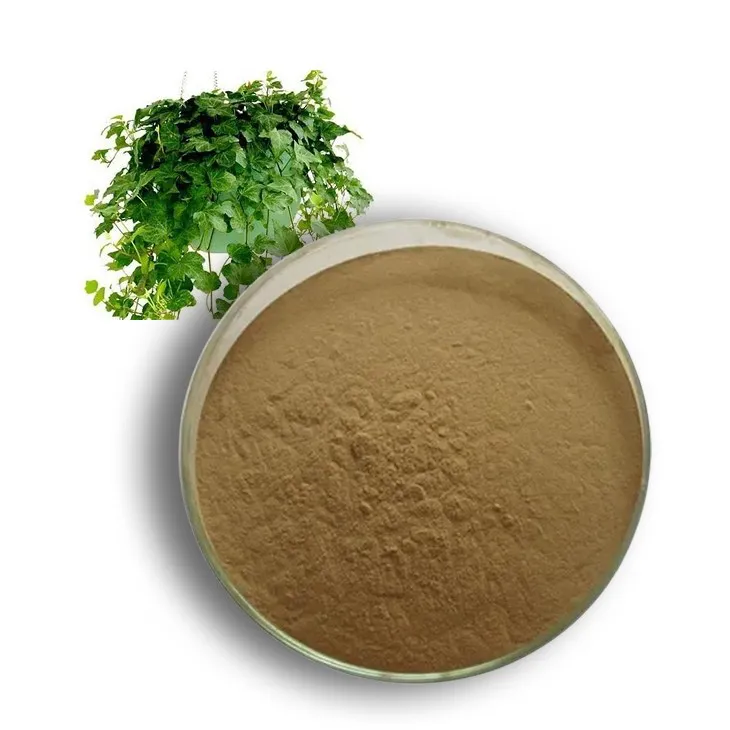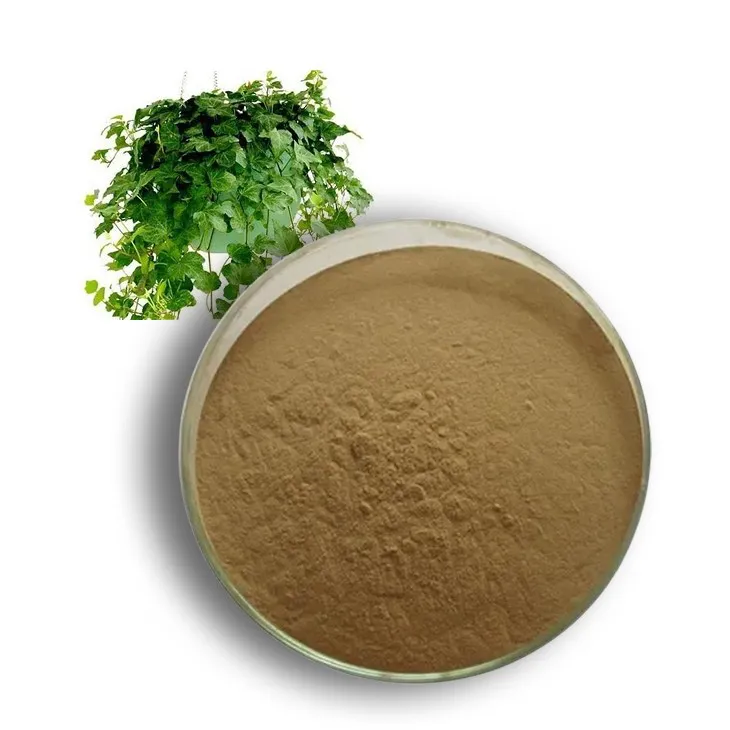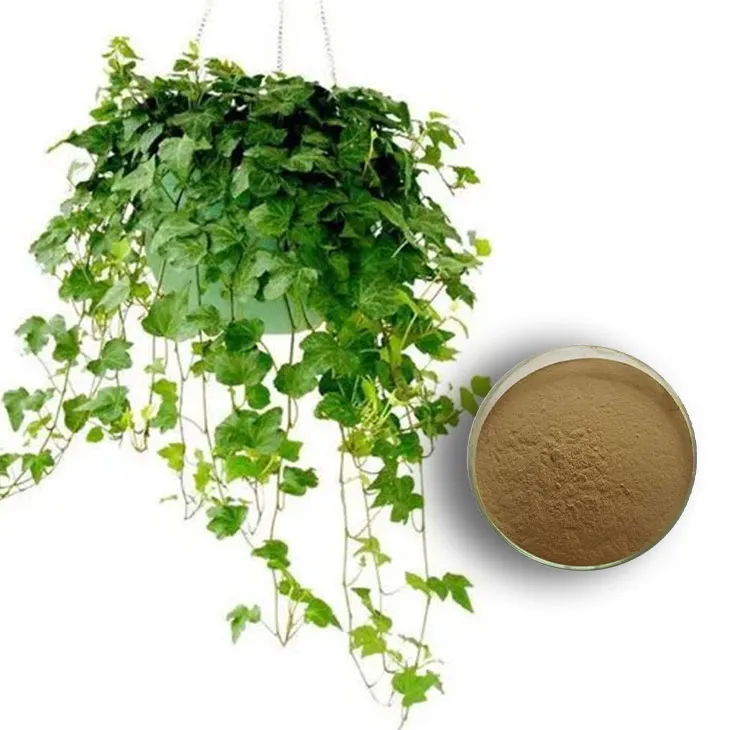- 0086-571-85302990
- sales@greenskybio.com
5 Benefits of Ivy Extract + Dosage, Side Effects
2024-11-11

1. Introduction
Ivy Extract has been used for centuries in traditional medicine for various purposes. In modern times, it has gained more attention due to its potential health benefits. This article will explore five of its remarkable benefits, as well as the appropriate dosage and possible side effects.

2. Benefits of Ivy Extract
2.1 Respiratory Health
Ivy Extract has been shown to have positive effects on respiratory health. It can help in relieving coughs, whether they are dry or productive coughs. The active compounds in ivy extract have expectorant properties, which means they can help to thin and loosen mucus in the airways. This makes it easier for the body to expel the mucus, thus reducing congestion and improving breathing. For example, in some studies, patients with bronchitis who took ivy extract supplements reported a reduction in the severity and frequency of coughing fits.
2.2 Anti - Inflammatory Properties
Another significant benefit of ivy extract is its anti - inflammatory properties. Inflammation is the body's natural response to injury or infection, but chronic inflammation can lead to various health problems. Ivy extract contains substances that can help to reduce inflammation in the body. This can be beneficial for conditions such as arthritis, where joint inflammation causes pain and reduced mobility. By reducing inflammation, ivy extract may potentially alleviate some of the symptoms associated with these inflammatory conditions.
2.3 Skin Health
When it comes to skin health, ivy extract can also play a role. It has antioxidant properties, which are important for protecting the skin from damage caused by free radicals. Free radicals are unstable molecules that can damage skin cells, leading to premature aging, wrinkles, and other skin problems. Ivy extract can help to neutralize these free radicals, thus keeping the skin looking healthier and more youthful. Additionally, some topical applications of ivy extract have been shown to have a soothing effect on skin irritations, such as eczema and psoriasis.
2.4 Immune System Support
Ivy extract may also offer support to the immune system. The plant contains certain compounds that can stimulate the immune system's response. A strong immune system is crucial for fighting off infections and diseases. By enhancing the immune system, ivy extract can potentially help the body to better defend itself against various pathogens. For instance, it may help in reducing the duration and severity of common colds and flu, although more research is needed in this area.
2.5 Cardiovascular Health
There is evidence to suggest that ivy extract can have a positive impact on cardiovascular health. It may help in reducing blood pressure levels, which is an important factor in preventing heart disease. High blood pressure puts extra strain on the heart and blood vessels, increasing the risk of heart attacks and strokes. The mechanisms by which ivy extract affects blood pressure are not fully understood, but it may be related to its ability to relax blood vessels or its antioxidant effects. Additionally, some studies have indicated that ivy extract may also have a beneficial effect on cholesterol levels, although more research is required to confirm this.

3. Dosage of Ivy Extract
The appropriate dosage of ivy extract can vary depending on several factors, such as the form of the extract (e.g., tincture, capsule, or tea), the purpose of use, and the individual's age, health status, and body weight.
3.1 For Respiratory Conditions
- If using an ivy extract tincture for respiratory problems like coughs or bronchitis, a common dosage is 1 - 2 ml three times a day. This should be diluted in a small amount of water before consumption. - In the case of ivy extract capsules, the typical dosage might be 300 - 600 mg per day, divided into two or three doses.
3.2 For Skin Health
- When using ivy extract topically for skin issues, it is important to follow the instructions on the product label. Usually, a small amount of the cream or ointment containing ivy extract is applied to the affected area two to three times a day. - If making a homemade ivy extract tea for skin health, a general guideline is to use 1 - 2 teaspoons of dried ivy leaves per cup of boiling water. Let it steep for 10 - 15 minutes and then drink up to three cups a day.
3.3 For General Immune Support
- For general immune system support, an oral dosage of ivy extract capsules could be around 300 mg once a day. However, it is always advisable to consult a healthcare provider before starting any new supplement regimen.

4. Side Effects of Ivy Extract
While ivy extract can offer several health benefits, it is not without potential side effects.
4.1 Gastrointestinal Disturbances
One of the most common side effects is gastrointestinal disturbances. This can include symptoms such as nausea, vomiting, diarrhea, or abdominal pain. These symptoms may occur more frequently when taking higher doses of ivy extract or when the individual has a sensitive stomach. It is important to start with a low dose and gradually increase it if necessary, while also monitoring for any signs of gastrointestinal discomfort.
4.2 Allergic Reactions
Some people may be allergic to ivy extract. Allergic reactions can range from mild, such as skin rashes, itching, or hives, to more severe, including difficulty breathing or swelling of the face, lips, or tongue. If any signs of an allergic reaction occur after taking ivy extract, it should be discontinued immediately and medical attention sought.
4.3 Interaction with Medications
Ivy extract may interact with certain medications. For example, it may interfere with medications used to treat blood pressure or diabetes. It is crucial to inform your healthcare provider if you are taking ivy extract, especially if you are on other medications. They can assess the potential for interactions and adjust your treatment plan if necessary.
5. Conclusion
Ivy extract offers a range of potential benefits for respiratory health, anti - inflammatory effects, skin health, immune system support, and cardiovascular health. However, it is important to use it in the appropriate dosage and be aware of the possible side effects. As with any supplement, it is always advisable to consult a healthcare professional before starting ivy extract use, especially if you have pre - existing health conditions or are taking other medications.
FAQ:
What are the five benefits of Ivy Extract?
The five benefits of Ivy Extract may include respiratory support, anti - inflammatory properties, antioxidant effects, potential immune system enhancement, and it may also have a positive impact on skin health. However, more research is often needed to fully understand and confirm these effects.
How should Ivy Extract be dosed?
The appropriate dosage of Ivy Extract can vary depending on factors such as the form of the extract (e.g., tincture, capsule), the intended use, and individual health factors. It is typically recommended to follow the instructions on the product label. In general, for adults, a common starting dosage might be in the range of a few hundred milligrams per day if in capsule form, but it is crucial to consult a healthcare provider before starting any new supplement regimen.
What are the possible side effects of Ivy Extract?
Some possible side effects of Ivy Extract may include gastrointestinal discomfort such as nausea, vomiting, or diarrhea. In some cases, it may also cause skin irritation if applied topically. Additionally, individuals with certain allergies or sensitivities may experience allergic reactions. It is important to note that if any adverse reactions occur, the use should be discontinued and medical advice sought.
Can Ivy Extract be used for respiratory problems?
There is some evidence to suggest that Ivy Extract may be beneficial for respiratory problems. It may help to soothe irritated airways and potentially reduce cough. However, it should not be used as a sole treatment for serious respiratory conditions, and medical advice should be obtained for proper diagnosis and treatment.
Is Ivy Extract safe for everyone?
No, Ivy Extract is not safe for everyone. Pregnant and breastfeeding women should avoid it as there is not enough information about its safety in these situations. People with pre - existing medical conditions, especially those related to the liver, kidneys, or a history of allergic reactions, should also consult a healthcare provider before using Ivy Extract.
Related literature
- The Pharmacological Properties of Ivy Extract: A Review"
- "Ivy Extract: Benefits, Dosage, and Safety Considerations"
- "Investigating the Side Effects of Ivy Extract in Clinical Trials"
- ▶ Hesperidin
- ▶ Citrus Bioflavonoids
- ▶ Plant Extract
- ▶ lycopene
- ▶ Diosmin
- ▶ Grape seed extract
- ▶ Sea buckthorn Juice Powder
- ▶ Fruit Juice Powder
- ▶ Hops Extract
- ▶ Artichoke Extract
- ▶ Mushroom extract
- ▶ Astaxanthin
- ▶ Green Tea Extract
- ▶ Curcumin
- ▶ Horse Chestnut Extract
- ▶ Other Product
- ▶ Boswellia Serrata Extract
- ▶ Resveratrol
- ▶ Marigold Extract
- ▶ Grape Leaf Extract
- ▶ New Product
- ▶ Aminolevulinic acid
- ▶ Cranberry Extract
- ▶ Red Yeast Rice
- ▶ Red Wine Extract
-
Black Rice Extract
2024-11-11
-
Resveratrol extract
2024-11-11
-
Shikonin
2024-11-11
-
Purple Sweet Potato Extract
2024-11-11
-
Black Garlic Extract
2024-11-11
-
Green Tea Extract
2024-11-11
-
Phellodendron Extract
2024-11-11
-
Plantain extract
2024-11-11
-
Wheat Germ Extract
2024-11-11
-
Yellow Pine Extract
2024-11-11





















